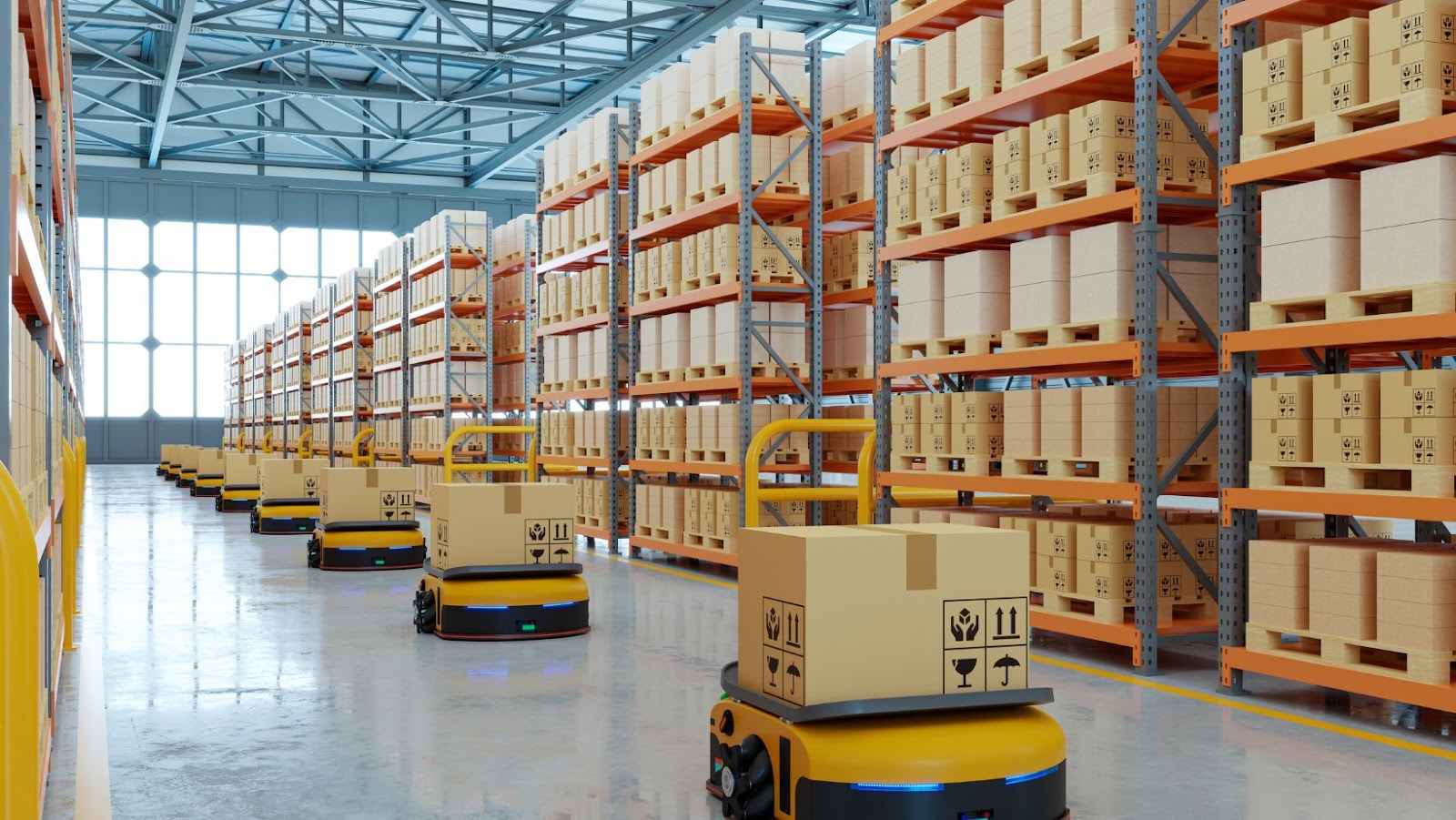
The potential consequences of an antitrust probe are wide-ranging. Antitrust probes are typically initiated by either governments or private actors, such as groups of companies or individuals. The goal of these investigations is to look into the practices of a company to ensure that it is not monopolising the market, or engaging in anti competitive behaviour that could prevent others from competing effectively.
In Germany’s case, this includes an investigation into Amazon’s activities related to pricing and alleged abuse of its dominant market position. In addition, the German Federal Cartel Office has widened its antitrust probe by including a third party supplier Dussmann Group in its investigation.
Understanding the potential consequences of an antitrust probe will help companies anticipate any troubles they may encounter when the results become public and take steps to protect their businesses from reputational damage and economic losses. In this article, we will discuss the different ways that companies can be affected by an antitrust probe and how they should prepare for potential outcomes:
- Reputational damage
- Economic losses
- Litigation
- Regulatory fines
Overview of Antitrust Probes
Antitrust probes can be very serious and have major implications for the companies involved. This can be especially true for large companies such as Amazon. Recently, news reports have emerged about Germany widening its antitrust probes of Amazon, which raises questions about the potential consequences of such a move.

In this article, we will discuss what antitrust probes are and the potential consequences they can bring.
So, What is An Antitrust Probe?
An antitrust probe, also known as an antitrust investigation or competition law investigation, is conducted by a government authority or formally constituted legal body to detect and prove the existence of anticompetitive practices that may harm a particular industry or market. Antitrust investigations involve:
- Researching market dynamics.
- Gathering evidence from trading events.
- Analysing economic theories.
- Issuing subpoenas to collect information from witnesses.
- Ultimately making an enforcement decision concerning the matter under review.
The world’s leading antitrust authorities constantly engage in localised investigations with international implications. For example, Germany’s Federal Cartel Office recently announced plans to launch expanded probes into Amazon’s online sales practices amid claims it is exploiting its online dominance in Germany’s retail sector. In addition, it is alleged that Amazon is engaging in anti competitive behaviour by systematically favouring its products over its competitors. The expanded probe follows similar investigations of anti-competitive behaviour launched by the EU Commission against Google and Apple in 2020.
Antitrust probes give government bodies the power to stop deceitful business practices that prevent market competition and ensure consumers get fair prices for goods and services. Depending on their findings, governments can fine companies up to 10% of their global annual turnover if found guilty of violating antitrust regulations. Other penalties include structural restraints such as breaking up a company into smaller entities or forcing them to sell off parts of their business operations, which can also be imposed if necessary. As such, commercial entities are encouraged to comply with law accordingly, given that non-compliance could result in serious financial losses for businesses operating across multiple industries worldwide.
History of Antitrust Probes
Antitrust probes began in the United States during the late nineteenth century. Since then, countries worldwide have implemented antitrust laws to prevent monopoly power and promote competition. Over the years, these laws have been applied more broadly to address unfair business practices such as information sharing between competitors and price-fixing.
Recently, European antitrust probes have been rising due to digitalization of businesses and concerns over market concentration. For example, in 2021 Germany widened its antitrust probe into Amazon over allegations of engaging in unfair behaviour towards third-party sellers on its platform. These investigations aim to protect smaller businesses from larger companies that use their advantage to act anti-competitively or limit consumer choice.
The consequences of an antitrust probe vary depending on the scope of the issue and how it is addressed. For example, in some cases, companies will be fined a certain percentage of their annual revenue; in other cases, they may face structural changes such as breaking up or being forced to divest assets if found guilty of violating antitrust laws. In addition, fines for criminal violations can result in imprisonment for those found guilty.
Potential Consequences of an Antitrust Probe
The German government recently announced it is widening its antitrust probe into Amazon, which raises the question of what potential consequences Amazon could face.
Antitrust probes can result in a variety of impacts to the company being investigated including:
- Potential fines
- Legal implications
- Reputational damage
- This article will explore the potential consequences of an antitrust probe in greater detail.
Fines
A key potential consequence of a Germany-wide antitrust probe of Amazon is the possibility of fines. The German Federal Cartel Office (FCO) can fine companies for anti competitive behaviour if and when it is detected as part of an antitrust investigation.
The FCO can issue fines for violations related to cartels (when companies collude with one another), abuse of market power, attempts at mergers, and failure to provide information upon request. Fines vary depending on the severity and duration of the violation, but may exceed tens or hundreds of millions of euros in extreme cases.
In the context of Amazon’s previously investigated abuse of dominant market position in France in 2018, where it was fined €10 million by the country’s Autorité de la Concurrence, similar fines could be issued by Germany based on results from an antitrust investigation there. Additionally, Amazon may be asked to cease such practices or agree not to engage in them again.
Restructuring
As part of any antitrust probe, companies may be required to take measures to restructure and transform the way they operate. For example, in the case of Germany’s antitrust probe, Amazon would have to change its business methods to adhere to new regulations. The restructuring might involve altering suppliers’ contracts, adjusting pricing structures or changing its approach to data analysis. It is also likely that a potential penalty will be put in place if the company is found guilty of any violations during the probe process.
The consequences of a restructure could include:
the disruption of companies’ already existing business models and practices.
companies may find it financially burdensome as they must update their systems, policies and procedures to meet regulatory requirements.
companies may experience an increase in operational costs as new staff and resources are brought in for compliance purposes.
This could lead to restructuring plans that negatively impact employees’ job security or wages, opening up new opportunities for employers and creating risks for employees who no longer have other viable options for work.
Loss of Market Share
When it comes to antitrust investigations, the potential consequences for companies found in violation of antitrust rules can be very severe. Once implicated, companies can face hefty fines and implications regarding loss of market share or even dissolution of business operations. This is particularly true in the case of monopolistic practices where a company is found abusing its power.
In recent news, the German government is bringing forth antitrust probes against Amazon, suggesting that they are not fulfilling their obligations under German competition law related to their treatment of small retail shops who sell products on their platform. If antitrust sanctions are valid and acted upon by the government or EU court, Amazon could see substantial losses in market share or even temporary shuttering of operations in Germany.

Other potential consequences may include:
- Losing certain mergers/acquisitions
- Mandating a change in company policy/structure (such as increasing transparency for selling practices and rates)
- Changes to corporate governance
- An inability to enter into new markets (if applicable)
- More stringent rules regarding future collaborations with other companies and/or regions.
- Of course the severity of each consequence will depend upon the gravity of violations committed by the respective firm – which can only be determined by independent legal bodies such as courts or government agencies after due investigation has occurred.
Reputational Damage
Antitrust probes conducted by organisations such as the European Commission or national authorities such as Germany’s Federal Cartel Office can result in reputational damage to companies involved. Not only do antitrust proceedings bring unwelcome attention to targeted firms, but companies found guilty of violating competition law are typically required to pay fines and can even face a full cessation of their business operations in certain cases. This can lead to a drastic decrease in consumer confidence and trust, leading to a drop in profits and long-term financial losses.
Apart from companies, antitrust proceedings may also have significant implications for stakeholders including employees, creditors and other third-party contractors or vendors. Employees working for companies undergoing or found guilty of anti-competitive behaviour may suffer due to lost jobs caused by fines imposed on their employers or exclusion from public tenders due to reputational harm. Creditors may likewise suffer losses due to the potential negative financial impact of sanctions on company profits. Third parties may find themselves unable to enter into contracts with an offending company due to large legal bills or unviable commercial terms they are likely subjected too, making it hard for those firms to stay afloat financially.
It is important for regulators such as the European Commission, national authorities in the EU member states and the companies themselves to consider these possible consequences throughout antitrust proceedings.
Germany Widens Antitrust Probes of Amazon
Germany has recently widened its antitrust probes in Amazon, with some warning that the tech giant could be in danger of being hit with hefty fines. The European Commission is already investigating the company for alleged anti competitive practices, and the German government is now taking a closer look at Amazon’s activities in Germany.
This article will discuss the potential consequences of any antitrust probes against Amazon:
Overview of Amazon’s Antitrust Probe in Germany
In February 2020, the German Federal Cartel Office (FCO) opened an investigation into Amazon in response to complaints from competitors who argued that the e-commerce giant used its market power to erase or restrict competition. This was not the first time that the company’s practices have come under scrutiny in Europe – the European Commission (EC) is already investigating Amazon’s data practices and tax arrangements in France and Italy.
The FCO’s probe has been widened to include Amazon’s terms of business with sellers, its third-party marketplace, and pricing practices such as price parity and most favoured nation clauses. This means that the outcomes of investigations by national regulators or competition authorities are potentially wide ranging and cannot be limited to a single country.
The German antitrust probe risks resulting in significant fines for Amazon if it is found to violate competition law. It could also lead to regulatory action such as instructing Amazon to make changes in their business model, ordering it to divest certain activities or prohibiting certain agreements that would likely affect their competitive advantage across Europe.

The probe could herald new approaches at European level regarding digital platforms and their operations, particularly concerning abuses of dominance involving data sharing and other factors affecting market structure. In addition, countries may implement specific regulations or guidelines on companies’ marketplace operations designed specifically with companies like Amazon in mind.
Potential Consequences for Amazon
An antitrust probe is a review or investigation of a business practice allegedly violating competition rules. For example, in the case of Germany’s widening antitrust probe into Amazon, the European Commission (EC) will look into the company’s controls over independent sellers and whether it has violated competition rules.
The EC is empowered to impose substantial fines if Amazon is found to have abused its dominant market position to create an unequal market advantage for itself. In addition, if a breach of competition laws has been established, remedies could include:
- Financial penalties, which could be crippling for Amazon;
- Forcing the company to close down certain operations;
- Forcing Amazon to modify its practices to restore competition; and/or
Ordering phone manufacturers and other companies selling products on Amazon’s website not to engage in certain practices.
Additionally, if it is found that these anti-competition practices have affected other European countries directly or indirectly, further fines may be imposed on the company. Finally, suppose further investigations uncover evidence of concerted practices designed to limit seller choice or stifle competition. In that case, criminal charges can be brought against such persons, directors, and executives responsible for such activities.
tags = germany antitrust watchdog, existing investigation of Amazon’s business in the market, nexi germanybased orderbird 130m 140mlundentechcrunch, car finn series korelya capital germanybellantechcrunch, germanybased staffbase series 1.1blundentechcrunch, finn series korelya capital us germanybellantechcrunch, car finn series korelya us germanybellantechcrunch, finn 110m series korelya us germanybellantechcrunch, 110m series korelya capital us germanybellantechcrunch, large digital companies, german competition law












